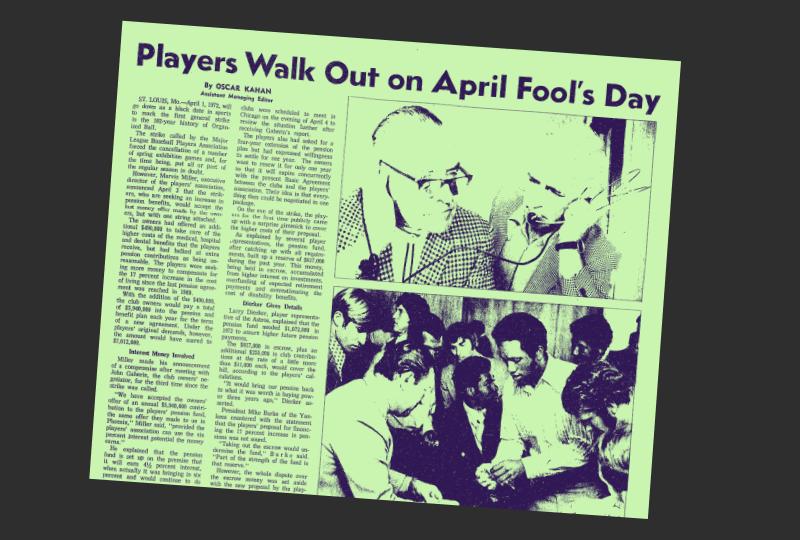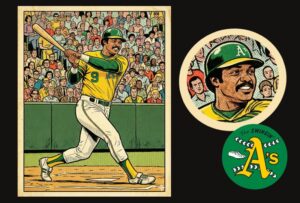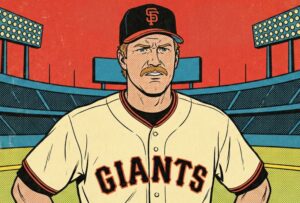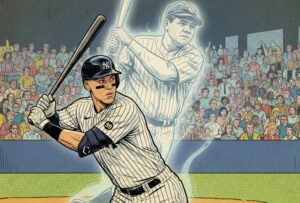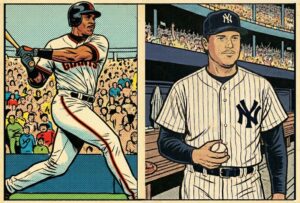In 1972 most baseball fans assumed harmony and line drives were all that mattered in the National Pastime. But that spring, just as the regular season was set to begin, Major League Baseball players went on strike as a group for the first time, cancelling 86 games. The strike set the stage for future wars between the MLB Players Association and team owners.
While the strike was relatively mild compared to future labor strife and work stoppages, the 1972 MLB Strike had immediate and long-term impacts. The league decided to not reschedule the games lost, and as a result some teams played more games than other teams. At the end of the schedule, the Detroit Tigers, who played one more game than Boston, won the American League East title by one-half game over the Red Sox.
This article from The Sporting News discusses the players decision to walk out on April 1, 1972. While The Sporting News was typically very pro-ownership, the magazine began to offer analysis of labor issues and arguments in the 1970s. You can see the PDF of this article here.
The success of the strike (the players received a commitment from ownership to increase money to the pension fund, as well as salary arbitration rights) emboldened the MLBPA, and three times in the next eight years, the players and owners locked horns over various issues. Finally, in 1981 the players walked out in the middle of the season, canceling two months of the season. That strike dampened enthusiasm for the game of baseball only briefly. It took a cancellation of the 1994 World Series after a player strike to damage the game’s image with fans. That labor battle, which stretched across both the 1994 and 1995 seasons (and was nearly resolved by President Bill Clinton) was the last time before 2021-22, that MLB and the MLBPA had a lockout or strike threaten peace in the game.
The status of the 2022 MLB season is uncertain: the owners have locked players out after the Collective Bargaining Agreement expired last December. It’s been weeks since the two sides sat down to discuss the issues at hand. It feels like 2022 will be more like 1981 and 1994 than 1972, when the strike was resolved fairly quickly.

